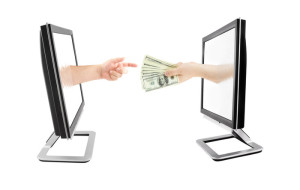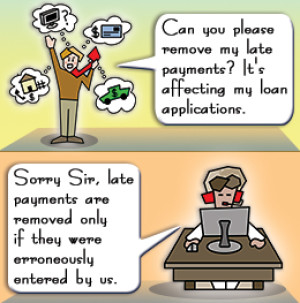Is AutoPay Right For You?

Making your payments automatically sounds like a great idea, or is it?
We have many customers who utilize some sort of automatic payment service from their banking institutions to pay their insurance premiums. Being conscientious about your obligations is to be lauded, however there are a number of possible issues that can arise as a result of using such a service. The one general misunderstanding that I’ve explained to my clients many times over the years is this: your automatic payment is not a “wireless transfer.”
Back in the day, I used such a service. I set up my bank account to pay monthly toward a credit card account. It worked well, for a while. Then, one month, I received a notice that my payment had not arrived and that my interest rate was being increased as a result. Of course, I wasn’t happy. I always paid on time and I had made a point to ensure this by setting up the automatic withdrawal from my checking account! Where was my money?
After a number of calls back and forth, I finally got someone on the phone who imparted to me a piece of information I did not have previously. The credit card company didn’t want to hear about why my payment was not there. They wanted proof I had sent it. They wanted a copy of my check. The bank didn’t want to give me a copy of the “check” they had sent and here’s why: there was no “check” from my bank account.
What the banks do is cull together as many payments from customers going to one payee as possible, and they send one bulk check, with a list of account numbers. They do not send one check just for you, with just your account number on it and they do not transfer just your payment. This sets up two possible weak points: 1) the compilation of the list going out from your bank and 2) the transferring of all account numbers from that list to the payee’s system accurately.
I can’t count how many times I’ve had the same conversation with an insured. The assumption is that their payment has gone out on the exact date they requested it and that their money has been wirelessly transferred to the company they wish to pay. That’s just not how it works. Unless you specifically request such a transfer, more than likely, your payment will be part of a bulk payment and hopefully it will be coded and subsequently logged in correctly. The key is to understand exactly what the service is that you are getting from your bank. Only then can you watch for the pitfalls and stay on track.
My best recommendation would be to check each month to be sure your payment has been posted by whomever you are paying. Ultimately, it will be your responsibility and odds are, if you are not proactive, neither the bank nor the payee will take ownership of the missed payment or any late fees you may be assessed. Doing this seems counter to the original purpose of setting up auto payments, I know. But it’s better than being charged a late fee or worse.
Here is an article titled “5 reasons to beware of autopaying bills” which points out some of the other issues. It offers some other things to look out for.









